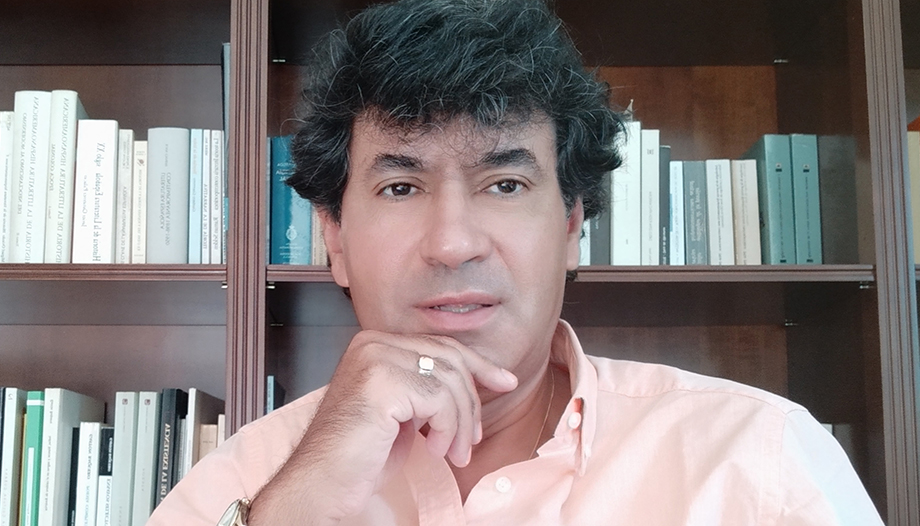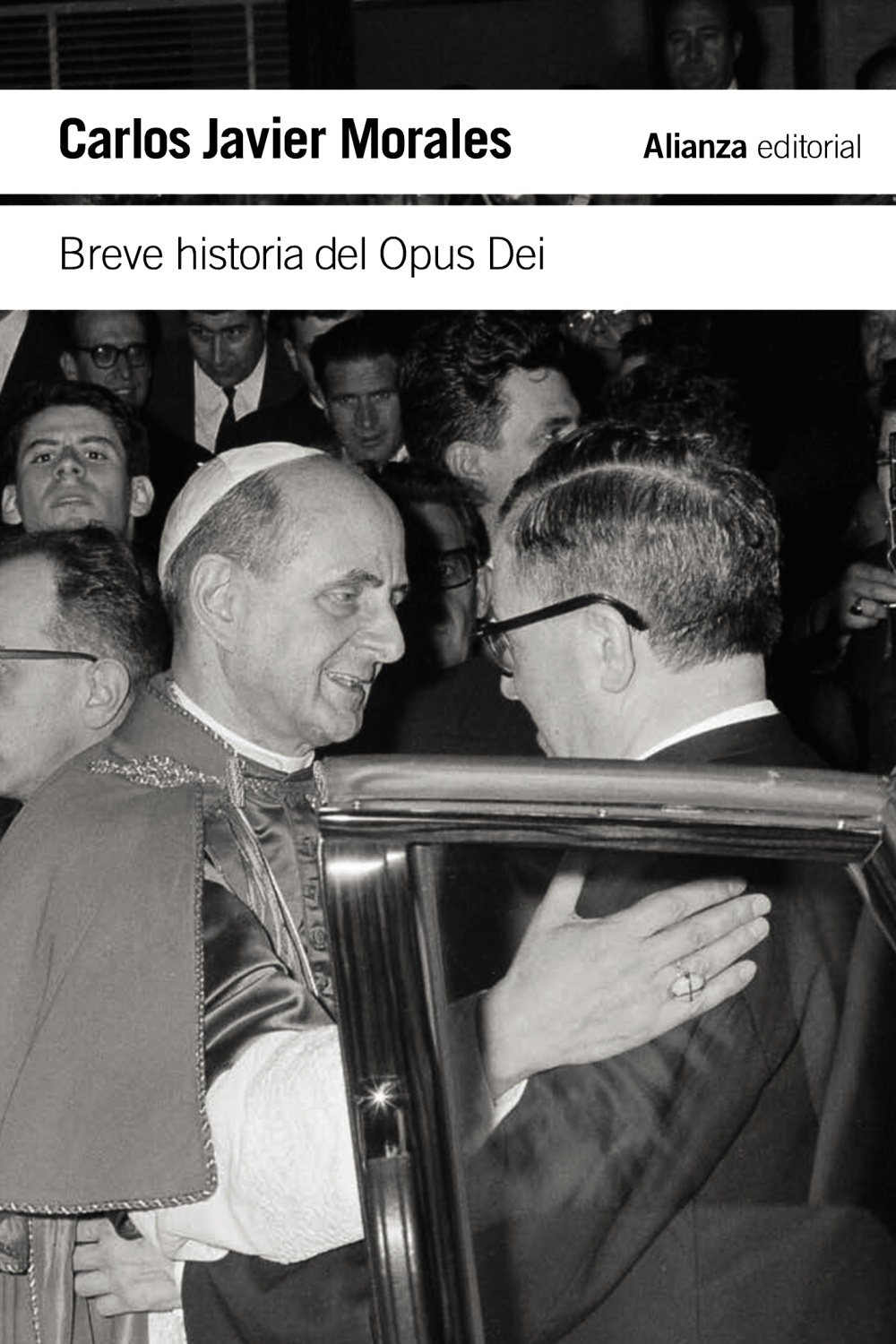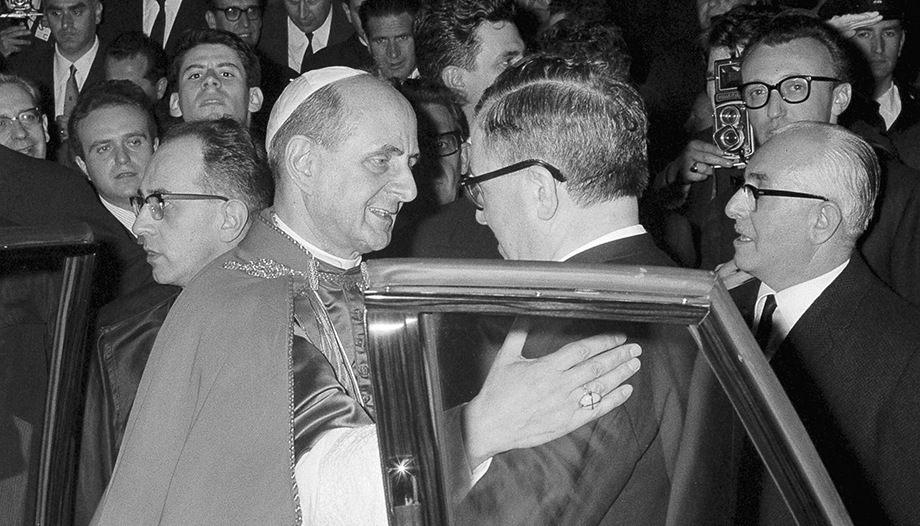 Saints in family life, a central teaching of St. Josemaría Escrivá's message
Saints in family life, a central teaching of St. Josemaría Escrivá's message Marriage and the family in the thought of St. Josemaría
Marriage and the family in the thought of St. Josemaría Charism and hierarchy in Opus Dei, two dimensions in the same reality. The Relationship between the Gifts of the Holy Spirit in the Church
Charism and hierarchy in Opus Dei, two dimensions in the same reality. The Relationship between the Gifts of the Holy Spirit in the ChurchThe beginning of 2023 saw the launch of the Brief history of Opus Deiwritten by Carlos Morales. This renowned poet and essayist, a native of Santa Cruz de Tenerife (Spain), where he currently teaches Spanish Language and Literature at a high school, writes in this volume an explanatory, clear and, in a certain way, didactic narration of the figure of the Opus Dei and its founder St. Josemaría.
In this interview with Omnes, Morales, a member of Opus Dei since his youth, reviews the discoveries made in the course of writing his book and the timeliness of the message of sanctification in the midst of the world that God made St. Josemaría see.
– Supernatural Brief history of Opus Dei What traits have you discovered or rediscovered about St. Josemaría during this time?
-My brief history is, yes, an explanatory narration of the events that, in my opinion, are most significant in the life of St. Josemaría, but it is also a history of his spiritual children and of the institutional vicissitudes of Opus Dei in the foundational stage, which culminated on June 26, 1975, and in the stage of the continuity of the charism received by St. Josemaría, in which we now find ourselves.
From founder of Opus Dei I have been discovering very significant traits since I got to know the Work, more than forty years ago. Traits that have always surprised me and continue to surprise me more and more.
With the writing of this book there are two particularly revealing qualities of the personality of St. Josemaría Escriva. One is the difficult harmony, evident from a very young age, between the profound and elevated contemplative life, on the one hand, and, on the other, the unceasing activity to develop day by day, even in its smallest concreteness, the institution that God had entrusted to him. Another feature is her fidelity to the foundational charism for almost fifty years, whatever the winds of change in the life of the Church and the world.
In this sense, it amazes me that in the beginning, during the 30s and 40s of the last century, many people considered him a revolutionary, even in ecclesiastical circles, and that in the last decade of his life he was branded as a conservative and reactionary. The truth is that, studying his life and reading his writings from the beginning to the end, St. Josemaría Escriva always preached the same message.

How does a member of Opus Dei approach this reality without being carried away by a "blinding passion"?
-My profession is that of a professor of literature and writer. Now, because of my experience of the spirit of Opus Dei over so many years, I understand that there are people - and very good people - who do not understand the novelty of the message of Opus Dei. Opus Dei.
For example, there have been and there are many people who do not understand that a few hours and a professional life dedicated to study and literary creation can sanctify a Christian as much as a few hours and a professional life dedicated to the study of theology.
Obviously, Theology is the supreme knowledge, and we should all know it to a greater or lesser extent, but that does not mean that its subject matter is more apt to attain sanctity than the subject matter of a writer, an engineer or a bricklayer.
One of the aspects that you underline in the book is the lay mentality that the founder of Opus Dei had. How does St. Josemaría combine his being a priest with this lay mentality?
-St. Josemaría always taught that every Christian, whether a cleric, consecrated religious or layman, is a priest. And that, therefore, the mission of his life is to be configured to the high and eternal priest, who is Jesus Christ.
In the laity, this priestly mediation is realized through temporal tasks, provided they are lived out of love for Jesus Christ.
In the ordained priest this mediation is carried out by exercising the functions of Christ the head of his Mystical Body, which is the Church. But the head and the body are one and the same Christ. Hence the ordained priest is at the service of the lay faithful, helping them in an irreplaceable way so that they can fulfill their priestly mediation in complete freedom.
And the lay faithful know that their priestly mediation will not reach its end without a sacred minister who offers to God the Father, in the Eucharist and in the other sacraments, the sacrifice of his ordinary life.
"They have arrived a century in advance." This was what a high Vatican cleric said about Opus Dei. Today (not yet a century old), is this conception of freedom and personal vocation in the midst of the world still difficult or, on the contrary, has it already been assumed by most of the Church?
-The two phenomena are not contradictory, but rather tremendously true. On the one hand, the Church has made her own the message of the sanctification of ordinary work and by ordinary work, as is eloquently revealed by the magisterial documents of the Second Vatican Council, which clearly define the proper mission of the laity within the Church.
However, in practice, there are still many Catholics who do not understand that a tradesman or a waiter can be as holy as a bishop, operating in the world with the same freedom as any tradesman or waiter.
In theory they do understand this, but in practice there are still many Catholics for whom the supreme path to holiness lies in the ministerial priesthood or in the consecrated life (which are, moreover, fundamental missions for the Church).
Now that Opus Dei finds itself in a new chapter of its history, what do you consider to be the keys to its future?
-For Opus Dei, and for every member of Opus DeiEach day is a new chapter, for all that it entails in terms of vital creativity in fidelity to the Gospel, which is always new news.
For me personally, the fact of its foundation on October 2, 1928, and the first two decades of the Work's history are especially revealing. During this time it becomes especially clear that Opus Dei is indeed a work of God, and that, despite all the difficulties that St. Josemaría and his sons encountered in the 1930s and 1940s, Opus Dei will always move forward.
I believe that the spirit of faith and hope of the beginnings must be an ever-present reality for any member of the Work.












